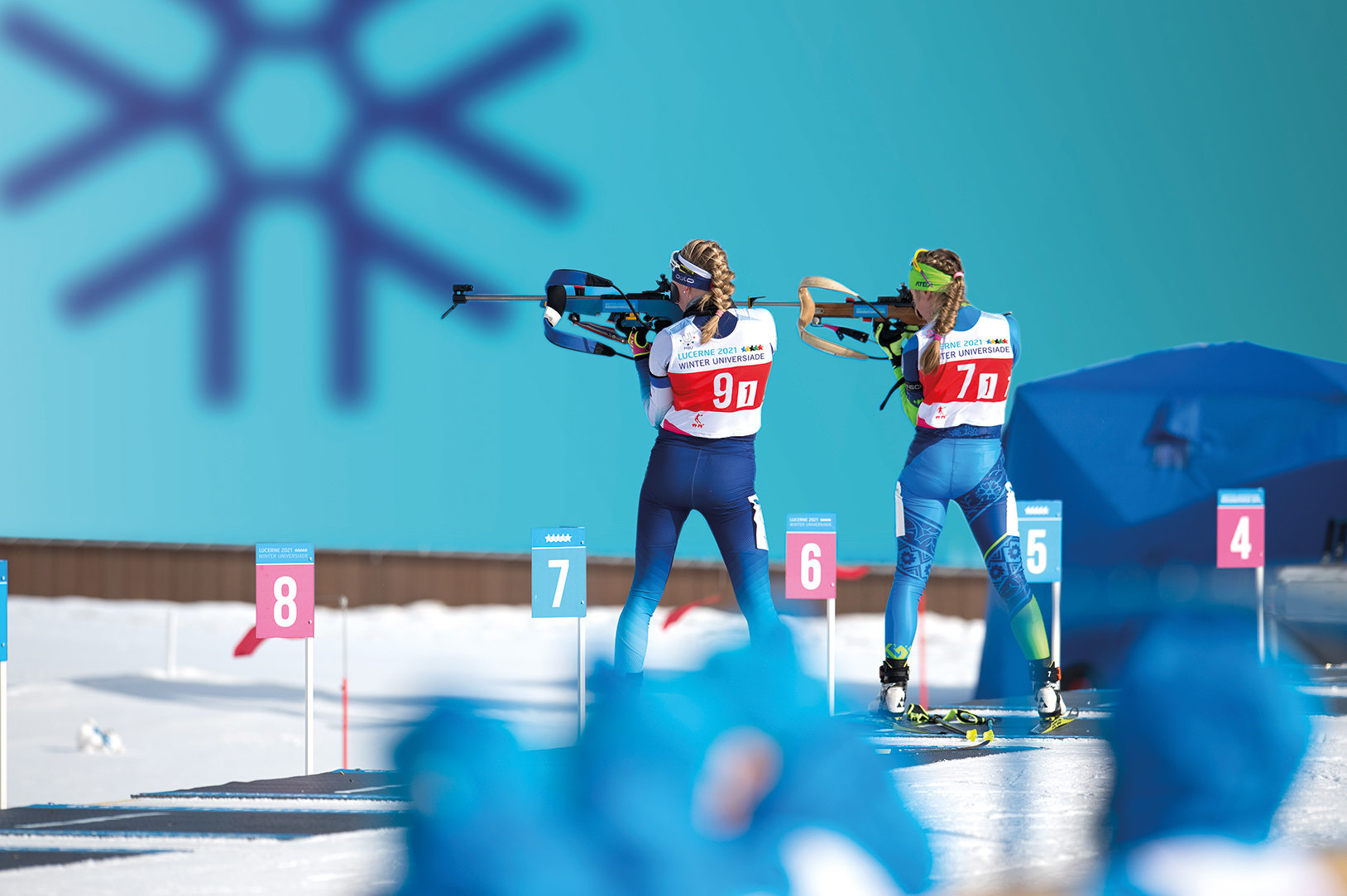
By Mike Rowbottom |
Can it be really be less than a week since the International Olympic President Thomas Bach, minus mask in order to address the Smart Cities & Sport Summit in Copenhagen, joked about feeling “naked” without it, and warmly welcomed the return to face-to-face meetings, with all their “body language”?
Answer: Sadly, yes.
We have been here before. And we have been here before in saying we have been here before. But here we are again – looping back round, more than two months after the conclusion of the re-arranged 2020 Olympic and Paralympic Games in Tokyo, worrying and wondering about the immediate future of sporting events (among other things).
Today’s news that the International Student Sports Federation’s Lucerne 2021 Winter Universiade has been cancelled less than a fortnight before it was due to start due to the emergence of the new COVID-19 variant Omicron did not come as a huge surprise.
Switzerland’s announcement at the weekend that it was extending its list of countries from which visitors would be required to present a negative COVID-19 test and quarantine for ten days was an ominous portent for the organisers of the event scheduled for December 11 to 21.
Australia, Belgium, Denmark, Britain, The Netherlands, Hong Kong, Israel and Czech Republic are among the nations whose teams would have had to quarantine in Switzerland for 10 days upon arrival for the Winter Universiade – and other countries are expected to be added to the list by the Swiss Government.
“As a result of these official restrictions, the Winter Universiade 2021 cannot now take place,” Lucerne 2021 said in a statement.
Lucerne 2021 President Guido Graf claimed organisers were “devastated and very sorry that we will not be able to welcome the athletes from all over the world, who have been preparing intensively for their competitions”.
What adds to the pain of the organisers is that Lucerne 2021 had been originally scheduled for January 21 to 31 but was pushed back by almost a year in response to the global health crisis.
Meanwhile, the position is shifting around the world.
Japan, which managed, through a stringent programme of testing and quarantining to host Tokyo 2020, announced today that all foreigners would be banned from entering as a result of the variant, which the World Health Organisation (WHO) has said poses a high risk globally.
And Australia has now paused its plan to reopen its borders to some foreign nationals amid fears over the new variant.
The long-awaited rule change made earlier this month allows permanent residents and fully vaccinated travellers from New Zealand and Singapore into Australia.
As from December 1, the country was due to add fully vaccinated Japanese and South Korean citizens to the list of those who could enter, as well as eligible visa holders, vaccinated skilled migrants and international students.
But Prime Minister Scott Morrison has said a delay of a fortnight is “necessary” following Omicron’s discovery.
On July 23, 2020, four months after Tokyo had been postponed until 2021, Bach marked the Year To Go with a video message:
“It can and will be the great comeback festival of sport to the international scene,” he said.
“We are preparing for this in the one year which remains to make these Olympic Games a real great festival of hope, resilience and of solidarity.
“These Olympic Games, Tokyo 2020 in 2021, can, should and will be the light at the end of the tunnel that all humankind is in at this moment.
“We are living a period of great uncertainty.
“Then at the end of this very difficult period for humankind, the Olympic Games can be a great symbol of hope, optimism, of solidarity and unity in all of our diversity.”
After his previous insistence that the Games would not need to be cancelled, you would have thought that Bach would have been a little more circumspect in using phrases such as “can, should and will”.
Viruses don’t tend to respect such clear verbal markers.
But let’s not be blaming Bach. We all wanted to believe that. And while the Tokyo 2020 Games were a wonderful if poignant experience given the enforced absence of foreign and, at the last, home spectators, they did not – very sadly – mark the end of the tunnel.
Part of the problem lies in the metaphor. COVID-19 is not a tunnel from which we may finally emerge. It is more an environment that, we all hope and pray, will become steadily less concerning.
That said, given the vexed circumstances of the Games that were supposed to celebrate the return of Games As We Knew Them, what might the consequences of this latest variant be upon the Beijing 2022 Winter Olympics due to get underway on February 4?
For if we know one thing it is that the variants will keep on varying.
And If the Omicron variant burgeons, how happy will the Beijing 2022 officials, who are already shaping up for measures at least as tight if not more so than those entailed for Tokyo 2020, feel about visitors from all over the world thronging past their borders?
Fingers crossed…
Republished with permission from insidethegames.biz.